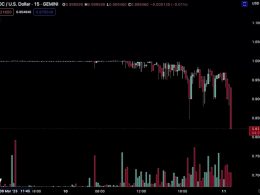Upon finishing the Center for Political Innovation’s Out of the Movement, to The Masses: Anti-Imperialist Organizing in America, I’ve come away with the sense that it was written out of both sadness over what U.S. communists have lost, and genuine hope that we can regain it. It’s necessary, to an extent, to mourn the great mass movement which got taken away from us during the 20th century. But this mourning needs to be done for the purpose of invigorating our efforts towards building something new. Towards reconnecting Marxism with this country’s people, and thereby connecting this country’s people with the global masses who are struggling against imperialism.
Much of what Caleb Maupin and the book’s other authors have done is compile writings by American communists from this last century, and by non-American communists (like Rosa Luxemburg) who have special things to contribute to our struggle in this country. They’ve republished writings by Marxist-Leninists like William Z. Foster and Gus Hall, as well as by figures who’ve deviated from Marxism-Leninism like Bob Avakian and Sam Marcy. For the book’s purposes of learning from history, the important thing is that all of these people have things to teach us. So their evaluations of the class struggle during the times when they wrote these things have been put into this record, able to go towards building the important argument which this book makes.
The idea this work conveys can be summarized as: what the USA’s communists built has been destroyed by both the state, and the actors within the communist movement who’ve made mistakes which aid the state. And the only way we can make the legacy of the past U.S. communists matter, and use their ideas to build another successful version of U.S. communism, is if we avoid repeating those errors.
A key part of this lesson is understanding the dual nature of Sam Marcy, one of the pivotal figures within 20th century U.S. communism. As the book makes clear, Marcy may have been a Trotskyist, but he was not one of the deranged kinds of Trots who single-mindedly attacked the Soviet Union. He actually had a geopolitical analysis with depth, and saw that being an anti-imperialist means not treating the imperialist and anti-imperialist blocs in the same way. For this reason, Marcy’s Workers World Party (and its offshoot the PSL) have avoided the destructive theoretical error the Maoists made, where they came to view the USSR as “social imperialist.” Such willingness on the part of the Marcyists to reject that particular type of dogmatic opportunism has made the Marcyist parties able to attract many anti-imperialist minded people over the decades. But within the ideology that Marcy formulated, there was a crucial flaw, one that would produce the different type of opportunism which PSL is now advancing.
One of the things that came from Marcy’s synthesis between Trotskyism and Marxism-Leninism was a strategy of aligning with liberal Democrats and the left. This was rationalized by how during much of the Cold War, especially the McCarthy era amd the Reagan era, the liberals were on the defensive against a dominant hard right-wing. The mindset such a practice created among Marcyism’s adherents was so strong that it blinded them. It made them unwilling to change their strategy when the country underwent a political reorientation, and the conservative base reacted to the 2008 crisis by turning against the war machine. Today’s Marcyists put forth a deteriorated version of Marcy’s teachings, where they tail the Democrats on the culture wars to show that no one outside the left is welcome in their circles.
The book makes it apparent that the solution isn’t to simply restore the original Marcyism, because Marcyism’s strategy was always flawed. As the book recounts, during the 80s the Marcyists would argue against capitalism by uniformly calling the capitalist state’s policies “racist.” Which they weren’t wrong about, but the effect this had was to reduce capitalism to race. It was a way of signaling that liberals could find a friend in the WWP, which evidently didn’t bring WWP to success. It couldn’t rebuild U.S. communism following its crippling by McCarthyism, and its next big defeat with the destruction of the Black Panther Party.
The explanation for this Maupin comes to is that WWP’s leaders view the masses as fundamentally reactionary: “The reason WWP has often hidden its Communist beliefs and talked about ‘jobs’ and other things assumed to be ‘more working class’ is because deep down, many of the high-ranking members believe that the working class are a crowd of dumb bubbas who couldn’t possibly understand Communism. The low ideological level of WWP’s literature is based on an inherent feeling of superiority. However, when one gets to know a large number of the WWP cadre, one realizes that despite their feelings of superiority, the rank and file of the party often cannot explain basic Marxist concepts.”
Due to WWP’s opportunistic activities, it’s since declined into irrelevancy. But its mode of practice has been replicated by the PSL, and therefore represents the primary form of petty-bourgeois radicalism today. Marcy did not share such a smug view of the people, but the leaders who’ve operated according to his practice certainly do. And the positive aspects of Marcy’s ideology are being used by these figures to keep Marxism-Leninism under the domination of their opportunistic project. PSL’s Brian Becker, one of the individuals who picked up organizational skills from Marcy, is putting forth a brand that’s ostensibly aligned with existing socialism but really acts to launder liberal ideas. Ideas like critically supporting social democrats, like Becker did with Sanders in 2020, and like taking a “neither NATO nor Russia” stance on Ukraine.
Though the book doesn’t go into as much detail about the PSL’s opportunism as Maupin unusually does, it refutes Becker’s core ideas by showing how they’re the same things that have driven WWP to ruin. Even if PSL doesn’t become irrelevant, it’s not going to win the people, which is what’s truly important. The book’s conclusion is that we need to break from the movementist model which has come to define U.S. communism, and recapture the old movement’s success at connecting with the masses. In the last section, CPI’s president Elizabeth Young says: “We take up the directive to get past the western leftist held spaces and methods, the US radical nostalgia and the elitist phrases disguised as Marxism and instead actually approach working class people with an anti-war message and economic populist program of demands.”
When CPI talks about anti-war messages, it means something different than what the PSL does; and when CPI talks about economic populism, it means something different than what “populist” bourgeois politicians do. This is a kind of anti-establishment politics that’s informed by the history of what’s truly been effective at combating the USA’s ruling institutions. The things Young advocates for can easily be twisted by opportunists into avenues for controlled opposition, which is what CPI’s project has avoided. It doesn’t vulgarize these things; it gives them depth, and speaks to the people about them in an honest and inclusive way. Becker’s version of antiwar activism and socialism is one where anybody outside the left gets excluded from the struggle. And the versions of “economic populism” promoted by figures like Sanders or Trump is one where U.S. imperialism gets maintained, strengthening the ruling class. The CPI is working to both bring in every element of society that has revolutionary potential, and lead these elements to victory by consistently acting against our ruling institutions.
What the late Marcyists have to offer is an inadequate substitute for the American communism of old; we need to authentically reconstruct such a communism, which is possible through studying historical resources like this book.
————————————————————————
If you appreciate my work, I hope you become a one-time or regular donor to my Patreon account. Like most of us, I’m feeling the economic pressures amid late-stage capitalism, and I need money to keep fighting for a new system that works for all of us. Go to my Patreon here.
To keep this platform effective amid the censorship against dissenting voices, join my Telegram channel.








